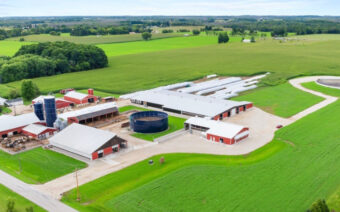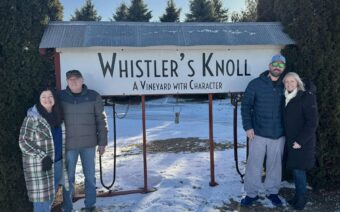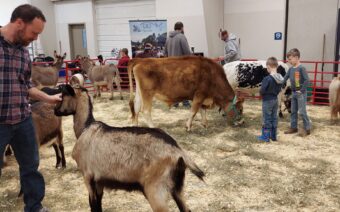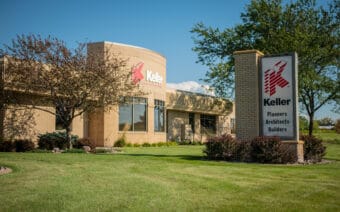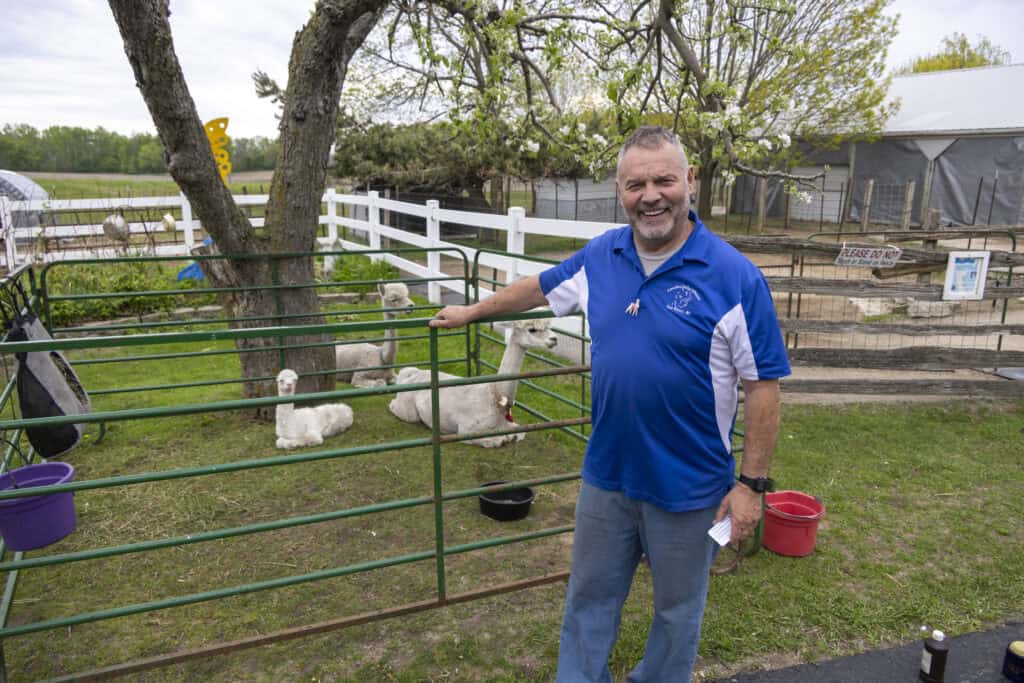
June 16, 2025
TWO RIVERS – To say Kevin Stoer has a passion for agri-tourism and all things alpacas might be a bit of an understatement.
The fourth-generation farmer started LondonDairy Alpacas in 1996 on his family’s homestead at 6827 State Highway 147 in Two Rivers.
The farm’s origins, per londondairyalpacas.com, date back to the late 1880s and Stoer’s great-grandparents, Joe and Mary Margaret, who began a wheat farm on 13 acres of land.
Over the years, the farm was operated by several generations, each putting their own stamp on the legacy – transitioning from wheat to dairy cattle to eggs to now alpacas.
His turn
After attending the University of Wisconsin-Madison to earn a bachelor’s degree in agriculture education with an emphasis in animal science and a master’s degree in educational child psychology from the University of Wisconsin-Milwaukee, Stoer said he taught agriculture in both the Mishicot and Green Bay school districts.
He said he later went on to be a school counselor and the student services department chair at Green Bay West High School.
When he took his place at the helm of his family’s homestead, Stoer said he knew he didn’t want to keep dairy farming.
“I didn’t want to raise anything I would have to butcher,” he said. “On top of that, I knew as I got
more mature, I was not going to be able to wrestle down a 1,400-pound Holstein cow to get a pill down its throat (when they were sick). Additionally, when you milk cows twice a day, there is no break.”
Stoer said he did a lot of research on other livestock and came across the alpaca.
New to the U.S. at the time, he said alpacas were being imported from South America – primarily Peru, Chile and Bolivia.
Though alpacas are related to llamas, Stoer said they have very different characteristics, which appealed to him.
For starters, he said they were not bred to be animals of labor, but for the fineness of their fiber. Stoer said they also don’t require a lot of space and are well-conditioned for cold weather.
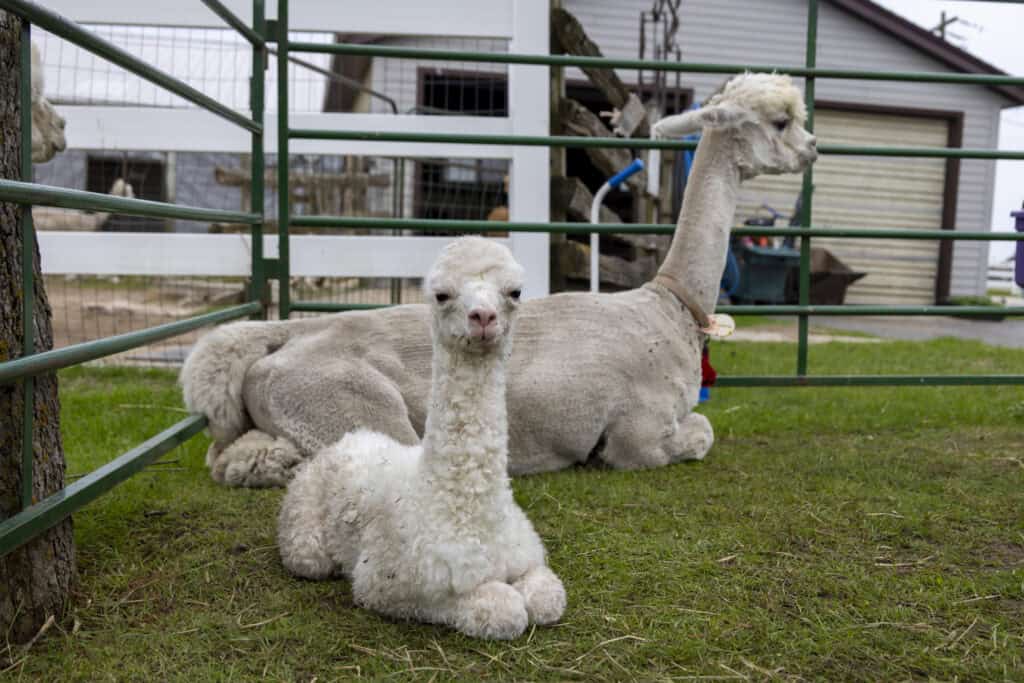
He said he began networking with a few other alpaca owners in Wisconsin, and the idea behind LondonDairy Alpacas was born.
Being one of the first people in the area to introduce the alpaca to Wisconsin, Stoer said LondonDairy has become a prominent breeder.
Alpacas, he said, generally have a good temperament – especially the ones at LondonDairy, because they interact with so many people.
Stoer said his alpacas are friendly and well acquainted with people because of the number of visitors that come to the farm for tours – and they understand visitors mean treats.
“I tell tour groups, ‘If you have a tray with grain (their favorite treat), they’ll come running up to
you,’” he laughed. “Once all the grain is gone, they’re gone. They’re not going to waste any more time once they realize you don’t have any more food.”
Stoer said alpacas are “amazing animals” and quite intelligent.
“They follow me around when I walk in the fields,” he said. “They get bored very easily and know when something’s different in their field and get really excited to investigate.”
Agri-tourism on the rise
As the separation between city life and farm life expands, Stoer said agri-tourism is on the rise.
In 2024, he said LondonDairy Farms had 3,000 guests visit the ranch, not including the many additional events they host.
To further support the ranch’s agri-tourism focus, Stoer said he works collaboratively with Explore Two Rivers, Visit Manitowoc, Circle Wisconsin and the Wisconsin Department of Tourism.
“Travelers are looking for unique experiences on their vacations,” he said. “Travelers on motorcoach bus tours don’t want to be just talked to – they want experiences and interactions, and they want to learn something.”
With the alpacas being such a draw, Stoer said he is trying new activities with them all the time.
One of the more recent of those activities, he said, was bringing the alpacas to greet the S.S. Badger car ferry for the season’s maiden voyage.
“People were amazed to see them,” he said. “These are nice small animals and they don’t intimidate people like a cow or a horse does. This means people are a little bit more curious and want to learn about them because of their size and because of the way they look.”
At the ranch itself, Stoer said tours are offered rain or shine.
As a former teacher, he said his passion for teaching remains, which is why tours focus a lot on education – education about alpacas, about the farm and about agri-tourism overall.
Stoer said he also has an educational display tent at the Wisconsin State Fair – which is accompanied by two alpacas from the ranch, along with a variety of alpaca products for sale.
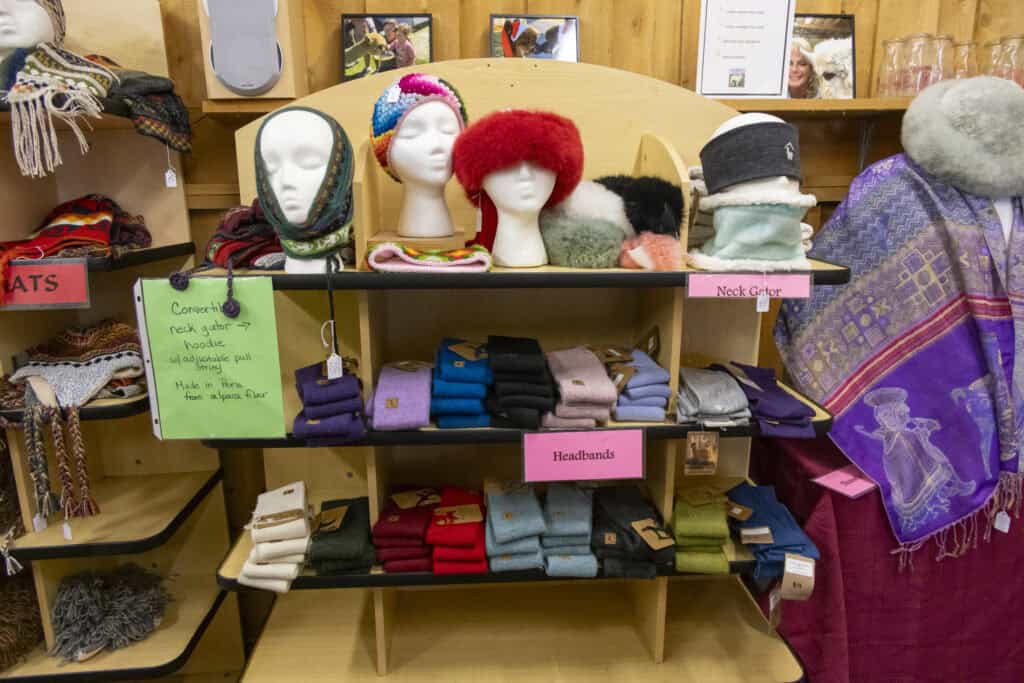
“When you consider 1.1 million people visited the state fair in 2024, it brings a large presence to agri-tourism,” he said. “Yes, people go for the bands and other entertainment, but people also come for the animals.”
In addition to the many off-ranch events he hosts off-site, Stoer said there are many unique events hosted directly on the LondonDairy property as well.
One of those is yoga – after all, he said, goats aren’t the only ones who do yoga.
“Here we do yoga on the lawn, and afterward we will let the alpacas freely roam with the people,” he said. “Alpacas do not jump on the participants, but they do observe with great curiosity.”
The right time
Looking back, Stoer said he knows he got into the market at the right time, and his upgrades throughout the years have gradually increased awareness of the ranch.
For example, in the beginning, he said people didn’t know they had alpacas because they were all in the fields behind the house.
As he brought the fences closer to the road, Stoer said he began to see an increase in traffic and people pulling over.
Stoer said there is one woman who stops almost every morning and greets Alpha – the big grey male alpaca in the front pasture.
Even though she doesn’t have grain, Stoer said Alpha comes over to her every day, and it’s apparent they’re both very content with the relationship.
Though the farm focuses on alpacas instead of its historic dairy cows, Stoer said his animals still produce income.
Alpacas, he said, produce fiber and are shorn annually.
The fiber is sent to mills where it is made into yarn, roving, socks, rugs, yarn, mittens, hats, scarves and more.
A few items, such as the felted soap and bird nesting balls, Stoer said, are made on site.
“We have rugs that a lady from Manitowoc makes for us,” she said. “She designs them however she wants. Then we have roving, which is what spinners use to feed into a spinning wheel to make yarn.”
Stoer said he remodeled the former milk bottling plant on the property and reopened it as a gift store in 2002.
Many people, Stoer said, prefer Alpaca fiber because of its hypoallergenic quality.
He said it contains no lanolin, an oil commonly found in sheep’s wool, which requires harsh chemical detergents to wash out before processing.
Due to its semi-hollow core, Stoer said alpaca fiber is naturally insulating, but also breathable.
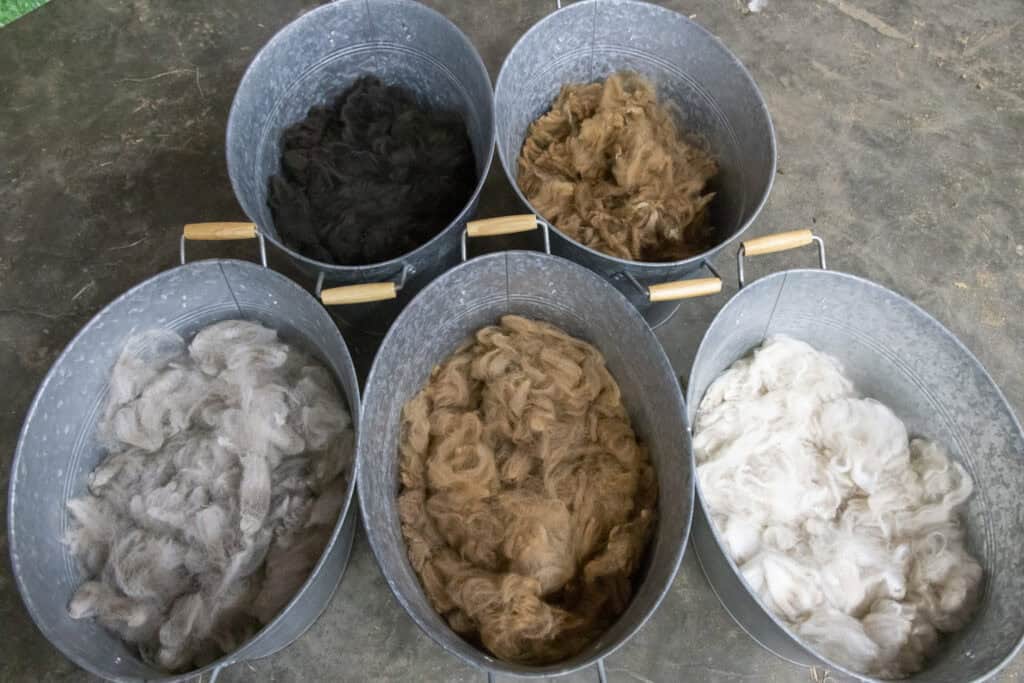
And because of the smooth structure, he said it holds less bacteria and other odor-causing agents, making it naturally odor-resistant and antimicrobial.
Shearing, Stoer said, is necessary to maintain proper body temperature, good health and hygiene.
Furthermore, because of the two distinct alpaca breeds – Suri and Huacaya – he said there are more than 22 different natural color variations.
Stoer said LondonDairy wasn’t always the agri-tourist destination it is today.
Though he often has to remind people LondonDairy is still very much a working ranch, being a reputable alpaca breeder, he said, is how it initially gained notoriety.
Stoer said the ranch was built to accommodate up to 125 alpacas.
Currently, he said he keeps the number to about 50, because he knows and understands the workload that accompanies a herd that size.
Though he does travel for shows and competitions, Stoer said the workload at the ranch generally takes priority.
He said there are many little tasks involved in the ranch lifestyle.
“While they are wonderful animals to raise, alpacas do have several specific physical and medical needs,” he said. “So, potential owners should educate themselves as much as possible prior to purchasing and owning them.”
Focusing on his why
As a former educator, Stoer said that part of him will never go away.
“Once an educator, always an educator,” he said.
However, Stoer said he wouldn’t trade the ranch for anything.
“I had a classmate ask me when I was going to retire,” he said. “I told him, ‘when I fall over dead.’ This work keeps me going. There’s a lot of work for sure, but this whole thing is so different from what I did in the classroom.”
The interactive nature of the programming, combined with an “excellent tour” and unique products in the shop, Stoer said, are precisely what makes LondonDairy Alpacas stand out.
His 30-plus years in the alpaca business and the knowledge he’s gained from traveling to some of the largest mills in the world, Stoer said, give him “a broader perspective.”
“That’s what makes me different and is certainly a part of what drives me,” he said. “I think Great Grandpa Joe would be very impressed.”
To find out more, visit londondairyalpacas.com.
 Make-A-Wish: ‘Dreams really do come true’
Make-A-Wish: ‘Dreams really do come true’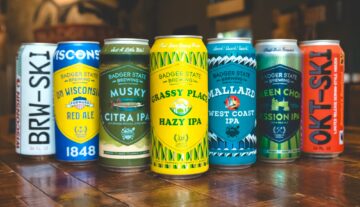 A little piece of Titletown now available in West Central Wisconsin
A little piece of Titletown now available in West Central Wisconsin



